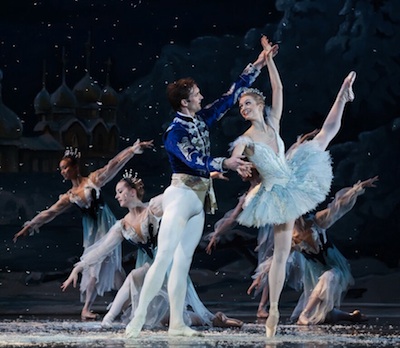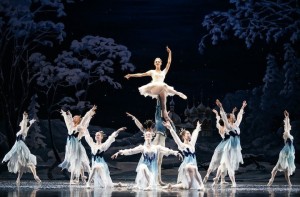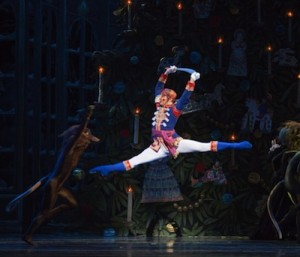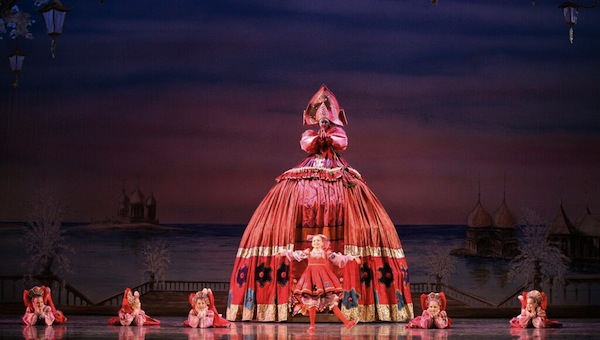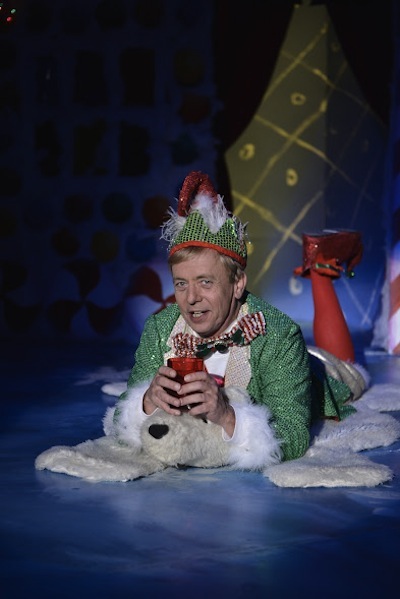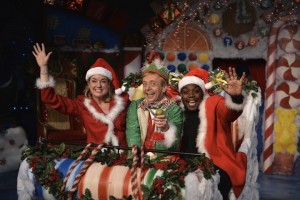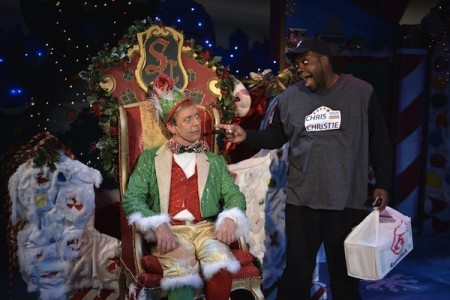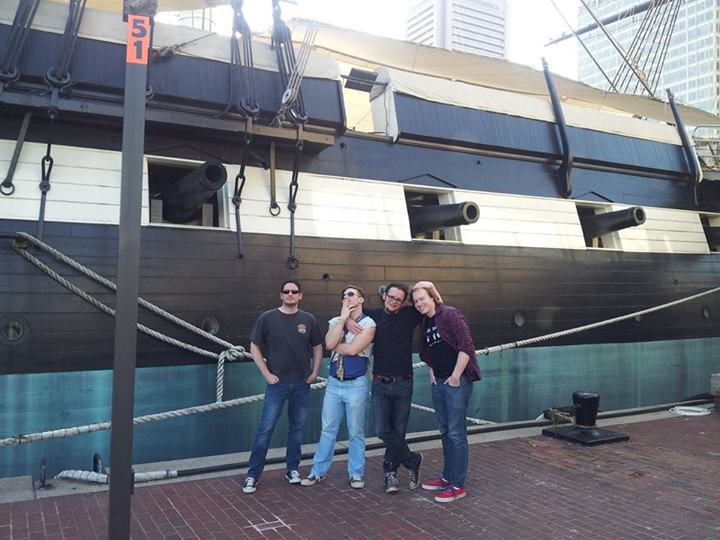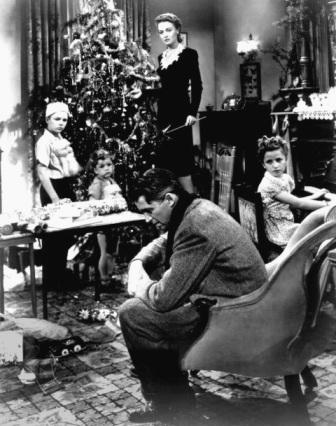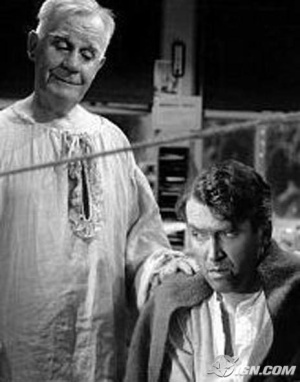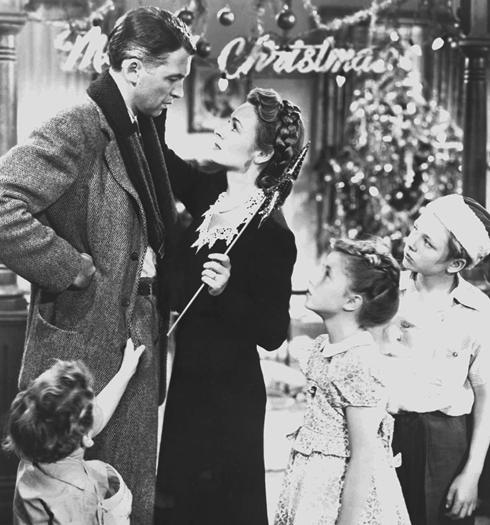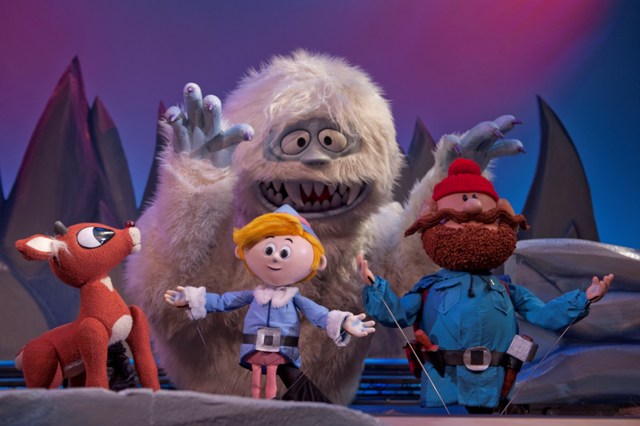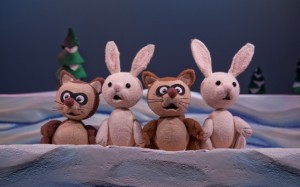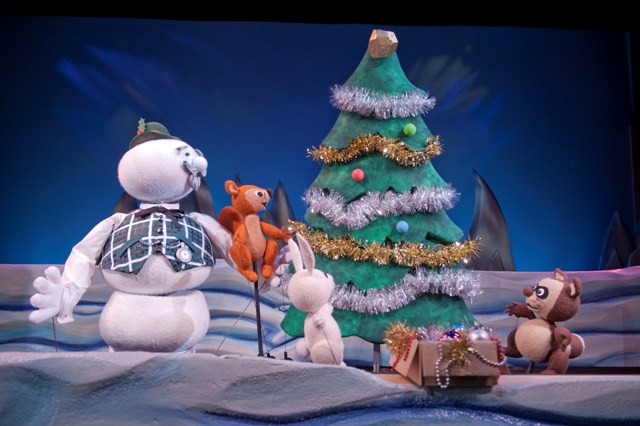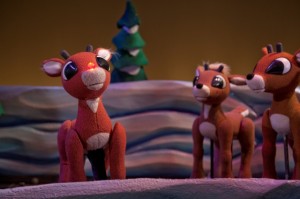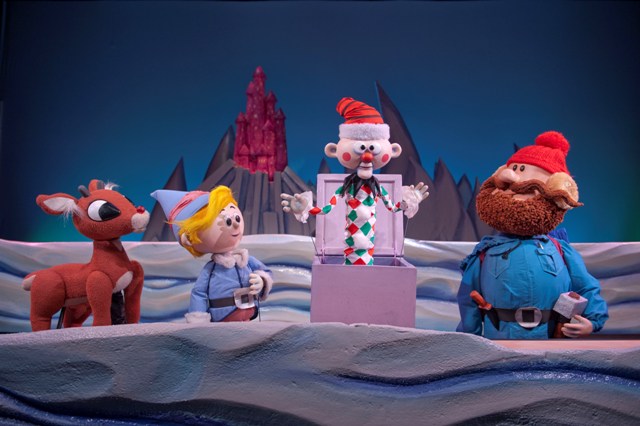
A trio of carolers in The Toast of Christmas Past, including left to right: Rivka Levin, Geoffrey Brown and Fiona Leonard.
Other Atlanta vocal ensembles may sing carols, but local acapella group The Toast of Christmas Past is reviving the tradition just as it was performed in 19th century England by wandering groups of singing Samaritans dressed in bustles and bonnets, frock coats and top hats. All of which reminds that while some may consider Charles Dickens’ A CHRISTMAS CAROL a great ghost story, but one need look no further than the title to see that the popular Victorian storyteller saw music as synonymous with the spirit of the season. Apparently contemporary audiences also long for simpler Dickensian customs as The Toast of Christmas Past tends to be booked almost every night during the holidays.
The Toast of Christmas Past is led by Fiona Leonard, an eclectic and energetic actress, singer, costumer, make-up artist and mistress of many trades well-known for her work with local theatre companies, film productions and attractions such as the Georgia Renaissance Festival where she sang in a rollicking pub band called Wine, Woman and Song. As a costumer, she started sewing and designing as a teenager and has won numerous awards and attained master class status at science fiction and costuming conventions. In recent years, however, Fiona has focused her creative energies more towards recreating the look of past eras than fantasy ones, and her caroling venture seems perfectly suited to a lady increasingly seen dressed in exquisite Victorian attire.
Curious about the origins of caroling, we asked Fiona if she would tell us what she knew about its link to Medieval wassailing and how the practice evolved into a mainstay of Victorian times. She also shared the story behind her own journey into caroling and Victoriana, as well as a bit about how listening to traditional holiday melodies seems to bring “tidings of comfort and joy” in this time of giving.

Geoffrey Brown, Fiona Leonard in red, and two other members of The Toast of Christmas Past.
ATLRetro: How did you first get the idea to start up an acapella caroling group, who are the group’s members, and why keep caroling alive in the 21st century?
Fiona Leonard: My dad [Al Leonard] and I worked at the Georgia Renaissance Festival for a number of years, and someone contacted them one year looking for carolers. They passed that on to my Dad and he put together a little quartet to do it. I replaced someone the next year, and we had several people ask us for cards at the event. So the next year I came up with a name and had cards printed up. We got three more bookings and The Toast of Christmas Past was born. From that point in 1994, we grew and in our best year had 55 bookings!
Each year I have anywhere from 12-24 carolers on call, who sing in trios and quartets. Most of my singers are musical theatre performers, so they have lots of personality and are good at engaging strangers. Although it is a great way to make extra money for the holidays, it is also a really great feeling to have people come up and tell you that your singing has put them in the holiday spirit. Making people feel something is really what performing is all about, and we really do get to spread joy wherever we sing.
How did Christmas caroling door to door (or in public places) get started?
Caroling comes out of several traditions, some going back over a thousand years. Religious songs composed for the common man to sing first started appearing around the 10th century, but really caught on as Protestantism began to spread around the world. But I think the most direct ancestor of our style of caroling is wassailing. This was basically legitimate begging. During winter holidays—whether solstice, Christmas or yuletide—groups of peasants or other poor would go from door to door, singing blessings on each house and demanding compensation in return. This was usually in the form of drink (hard cider, mulled wine or spiced ale), food (sweets, figgy puddings, cakes), money or at the very least a spot by the fire to warm up.
Everyone in The Toast of Christmas Past wears Victorian clothes and embraces that era. Why was caroling so popular in Victorian times, who did it, who did they sing for and how did Victorian caroling compare to caroling in previous and later times?
There was a great trend in the Victorian Era to romanticize things of the past and things from other cultures outside the Empire. Christmas trees as we know them became popular at this time, and the beginnings of Christmas as a commercial holiday come from that period as well. What was a fairly small celebration started adopting traditions from older times (wassailers, Morris dancers and pantomimes); strangers with gifts (magi, St Nicholas, Norse gods); sacrifices to older gods of meat, drink and produce (geese, roasts, horns of plenty, trees hung with fruit or even game); and evergreen boughs, holly and mistletoe hung to repel evil spirits in the dark of winter. All of these combined to make Christmas the celebration we know today.
Caroling or wassailing is fun, it’s something the whole family can do, [and] it’s much more acceptable than straight begging, since you at least offer entertainment. Victorians did it for all those reasons, and Dickens set the practice in the public mind with his caroling urchins in A CHRISTMAS CAROL. The story itself has become such a classic that we tend to think of Christmas as described by Dickens to be “classic” Christmas, something to hark back to and try to achieve. Really, this era has just as much tendency to romanticize the past as the Victorians.

Fiona Leonard dressed to carol.
What were some of the greatest hits of Victorian caroling, and do you limit yourself to songs dating from that era or do you throw in some more recent seasonal favorites, too?
We do not limit ourselves to Victorian carols, but some of the songs we sing that were popular then include: “Good King Wenceslas,” “Here We Come A-Wassailing,” “O Come All Ye Faithful,” “We Three Kings,” “Twelve Days of Christmas” and “Jolly Old Saint Nicholas.”
When you were interviewed for PBS Radio [listen to it here], you talked about one of the reasons you enjoy caroling being actually turning around someone’s mood. Do you think caroling has a therapeutic effect on either the listener or the caroler or both?
I have always found singing to be therapeutic and cathartic. I think live carolers invite listeners to feel the music in a way that recorded music can never truly achieve, which makes the emotional impact very intense.
How do children react to your caroling in costume?
I get called a princess a lot! Kids really seem to like us and often want to join us, which we encourage.
Who hires a Victorian caroling group and at what kind of events do you perform? How can we hire you?
You can hire us by going through our website: www.toastofchristmaspast.com. We have been hired by malls, entertainment venues, museums, townships, business associations, property management, the airport and, of course, for plenty of private holiday parties. If you are traveling through [Hartsfield-Jackson Atlanta International Airport] Monday Dec. 19 or Tues. Dec. 20, look for us between 2:00 p.m. and 6:00 p.m.
Is it correct that you made your Victorian caroling dress? Did you make all the costumes for the group? If yes, how far did you go to ensure the clothes were period-accurate, and can you recommend a few online resources for Victorian costumers?
I do make my dresses and many of the other costumes we wear. Some of the other ladies have made their own dresses, and even one or two of the gentlemen have put together their outfits. My preferred period is 1878-1882, a brief window when the bustle was still present but very small. I just think the dresses from that period are very pretty and graceful. You can get away with a little lower neckline and 3/4 sleeves for that period as well, which I find more comfortable. Most of the ladies do wear corsets and petticoats with their costumes. There are all kinds of resources online, but mostly I just order corset supplies online, usually from Farthingales or dealers on etsy.com.

The Toast of Christmas Past performs at Hartsfield-Jackson Atlanta International Airport.
You’ve done a lot of Victorian costuming and performing. You’ve won awards for your work and regularly are a costume judge at Oakland Cemetery‘s Sunday in the Park annual event in October. In broad terms, what appeals to you personally about the Victorian era, and if there was one aspects of it that you wish had survived to the 21st century, what would it be?
Honestly, I just love how decorative things were. I love ruffles and fringe, and curlicues and flowers, and men in well-tailored clothing. Also I read way too much Barbara Cartland, and I am just sure some tail-coated dandy is going to sweep me off my feet if I have enough ringlets in my hair! If there was one aspect of the era I wish had survived, it would be the practice of giving dances and balls as standard social gatherings. I love a good waltz!
What’s up with Wine, Woman and Song?
We retired from the Georgia Renaissance Festival in 2002. We still perform together occasionally, usually for St. Patrick’s Day or historical re-enactments. We can still be booked through the Toast website.
What else are you up to performance and costuming-wise when it’s not the caroling season? Anything exciting coming up in 2012?
I work full-time at Costumes, Etc…, which is a family owned business in Midtown off Cheshire Bridge Rd.They do rentals and retail, but they also take on a certain number of special commissions which I get to make a lot of. I will be costuming GUYS AND DOLLS for Habima Theatre at the MJCCA at the beginning of the year. I am hoping to actually get out and perform in a show or two next year, time permitting.
In 2012 I hope to record a CD of The Toast of Christmas Past to make available for purchase. I am also considering putting on a Toast concert early in the season next year for the public.
Editor’s Note: All photographs are courtesy of The Toast of Christmas Past and Fiona Leonard.
